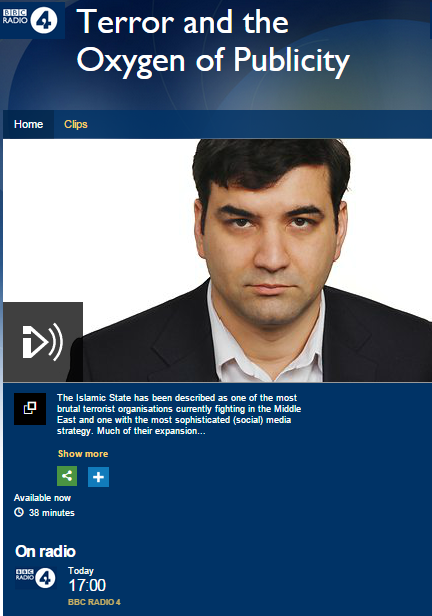1) The ITIC analyses ‘Mounting tension between Hamas and the Palestinian Authority because of Hamas’ efforts to strengthen its status among the Palestinians’.
“The growing increase of Hamas’ popularity in Palestinian society, at the expense of Fatah, was boosted when Mahmoud Abbas’ delayed, and in effect canceled, the Palestinian Authority (PA) parliamentary and presidential elections. It increased further after Operation Guardian of the Walls (May 2021) when Hamas positioned itself as the “defender” of Jerusalem, the Muslim holy sites and the Palestinian residents of the city. Hamas has been fomenting popular unrest to solidify its position as the Palestinians’ main influencer, with tactics including demonstrations of strength in Judea, Samaria and east Jerusalem to undermine security in the PA territories while maintaining relative calm in the Gaza Strip to advance an arrangement with Israel.”
2) Writing at Newsweek, Matthew Zweig discusses ‘The Coming Middle East Narco Wars’.
“In April, Saudi Arabia, the United Arab Emirates and other Gulf states temporarily banned the import of agricultural products from Lebanon. This was not a response to political events or to an overt military or political provocation by Hezbollah, the Iranian-backed terror group that effectively runs Lebanon. Rather, the ban came in response to the discovery of a massive shipment of the amphetamine Captagon, concealed in Lebanese produce that arrived in a Saudi port.”
3) At the FDD, Emanuele Ottolenghi looks at the implications of the recent presidential election in Chile.
“For Iran, Chile is no different, in this regard, from other countries in the region, except for one critical element. It is home to the largest Palestinian diaspora in the world. This largely Christian community, whose origins date to immigration during Ottoman times, holds strident, radical positions on the Palestinian-Israeli conflict – and Boric has embraced them. During his electoral campaign, he pledged to support boycott, divestment, and sanctions (BDS) legislation against Israeli businesses in the West Bank – a pledge which the Chilean-Palestinian community leadership has already requested he honor.
He has also publicly and gratuitously scolded the local Jewish community, waving the trope of dual loyalty against them. When local Jewish community leaders sent him honey as a gift for the Jewish New Year in 2019, he derided their commitment to a tolerant, inclusive society by publicly calling on them to disavow Israel and its policies to prove their bona fides.”
4) On January 4th UKLFI will host a webinar titled “Zionism, Palestinian Nationalism and the Law”.
“In this webinar, Professor Zipperstein will discuss the research in his latest book, which analyses the role of the law during the last decade of the British Mandate for Palestine from 1939-1948. In this period, Arabs and Jews used the law to gain leverage against each other and to influence international opinion. Invoking ‘transformational legal framing’ they portrayed the essentially political-religious conflict as a legal dispute involving claims of justice, injustice, and victimisation. The arguments and their results remain crucially relevant today.”
Registration here.
5) On January 6th CAMERA will host Dr Jonathan Schanzer for a discussion about his latest book ‘Gaza Conflict 2021’, which provides an in-depth look at the 11-day war last May between Hamas and Israel. Registration here.
Wishing all our readers a happy and healthy 2022.






Boris should also be calling on the Palestinian community in Chile to disavow Gaza and the West Bank.